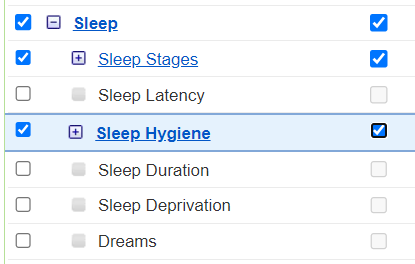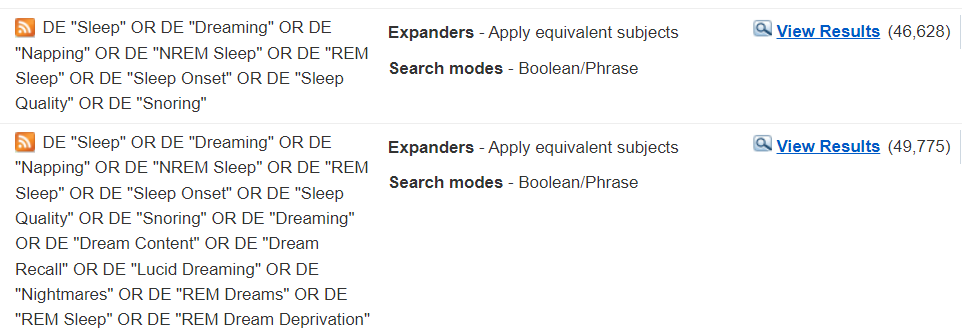Tip #45: Exploding Subject Terms in EBSCO APA PsycInfo vs. EBSCO MEDLINE
Positive update!
EBSCOhost APA PsycInfo, as of September 2025, offers what they're calling "Deep Explode." When explode is selected in the APA Thesaurus, all narrower terms are selected all the way to the bottom of the tree. Rather than being represented by a +, this explosion simply ORs together all the narrower terms in the search box itself.
In what is now named (in all EBSCOhost databases in the new user interface) the Subjects authority, you can select the term and check the Explode box:
Then use the Add to search button with OR selected in the drop-down menu.The information below is now out of date! Happy searching!
On the EBSCO platform (or EBSCOhost, if you prefer), MEDLINE and APA PsycInfo both have searchable thesauri. However, while these two thesauri are both hierarchical, EBSCO does not index them in the same way, which leads to inconsistent explosion behavior. This post addresses just those two databases, but the issue itself is relevant across the EBSCO platform. According to EBSCO's documentation, only MEDLINE, CINAHL, Environmental Policy Index and ERIC support traditional explosion.
Those of us who search PubMed are accustomed to how the use of the search tag MeSH (i.e., [mesh] or [mh]) defaults to "explode." In PubMed, exploding begins at the selected term (e.g., Sleep), and retrieves results for that term and everything narrower, all the way to the bottom of the tree. There is no need to manually explode on any narrower terms, even if those terms, (e.g., Sleep Hygiene), have their own narrower terms.
The MEDLINE thesaurus works the same way on EBSCO.
In the image below from the MeSH thesaurus search on EBSCO's MEDLINE, Sleep is selected using the checkbox to the left. In PubMed, selecting Sleep explodes by default. Here it's necessary to select the Explode checkbox, seen below in the column to the right. The column header is snipped to make the image clearer. The plus sign (+) to the left of two narrower headings of Sleep, Sleep Stages and Sleep Hygiene, indicates there are narrower terms underneath them in the hierarchy. The expected behavior when exploding on Sleep is for the search to include Sleep, all Sleep's narrower terms, and all its narrower terms' narrower terms, all the way to the bottom of the hierarchy.
In the next image, Sleep is set to explode, and the Explode box is also checked next to the two narrower terms which have their own narrower terms.
The search box translates this to: (MH "Sleep+") OR (MH "Sleep Stages+") OR (MH "Sleep Hygiene+").
However, in the search history, it's clear that these two different searches yield the exact same number of results, demonstrating that exploding on the broader heading includes narrower terms all the way to the bottom of the hierarchy.
APA PsycInfo's thesaurus on EBSCO doesn't work the same way. It explodes down the tree, but only by a single level. Let's look at a similar example to the one above.
















Comments
Post a Comment